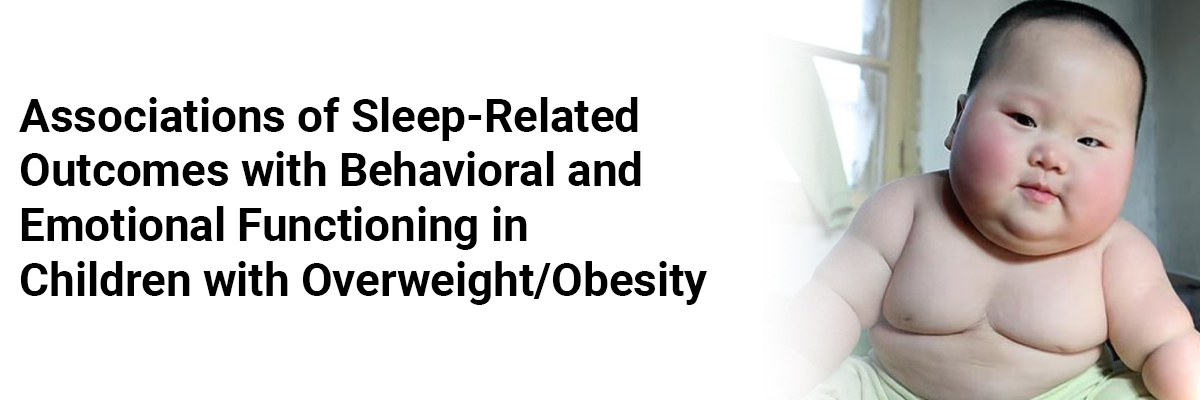
 IJCP Editorial Team
IJCP Editorial Team
Associations of Sleep-Related Outcomes with Behavioral and Emotional Functioning in Children with Overweight/Obesity
Health requirement in school-age children includes healthy sleep, with adequate duration and continuity, consistent sleep onset and wake-up timing, along with the absence of sleep disorders. Obstructive sleep-disordered breathing (SDB) affects 4%-11% of children globally, including severity ranging from primary snoring to obstructive sleep apnea (OSA). Evidence suggests an intimate link between Pediatric obesity and sleep problems, increased risk of SDB, suboptimal sleeping times, insufficient sleep efficiency, and short sleep duration.
A recent study thus evaluated the associations of parent-reported sleep-disordered breathing (SDB) and device-assessed sleep behaviors with behavioral and emotional functioning in pediatric patients with overweight/obesity.
The study included 109 children with overweight/obesity (mean age, 10.0 ± 1.1 years), who were assessed for SDB and its subscales (ie, snoring, daytime sleepiness, and inattention/hyperactivity) employing the Spanish version of the Pediatric Sleep Questionnaire (PSQ). Device-assessed sleep behaviors (ie, wake time, sleep onset time, total time in bed, total sleep time, and waking after sleep onset) were calculated utilizing wrist-worn accelerometers.
Further, the Behavior Assessment System for Children, second edition, was employed to assess behavioral and emotional functioning (ie, clinical scale: aggressiveness, hyperactivity, behavior problems, attention problems, atypicality, depression, anxiety, retreat, and somatization; adaptive scale: adaptability, social skills, and leadership).
The observations were as follows-
- SDB showed a positive association with all clinical scale variables and with lower adaptability and leadership.
- The PSQ subscale relating to daytime sleepiness showed a specific association with higher attention problems, depression, anxiety, retreat, and lower adaptability.
- The inattention/hyperactivity subscale showed significant association with the entire clinical and adaptive scales but somatization.
- The snoring subscale and device-assessed sleep behaviors did not relate to any behavioral or emotional functioning variables.
Thus, the SDB symptoms, but not device-assessed sleep behaviors, are associated with behavioral and emotional functioning in children with overweight/obesity. Particularly, daytime sleepiness, a potential SDB symptom, is related to higher attention problems, depression, anxiety, retreat, and lower adaptability.
Torres-Lopez LV, Cadenas-Sanchez C, Migueles JH, et al. Associations of Sleep-Related Outcomes with Behavioral and Emotional Functioning in Children with Overweight/Obesity. The Journal of Pediatrics. 2022(246): 170-178.e2. https://doi.org/10.1016/j.jpeds.2022.03.006.

IJCP Editorial Team
Comprising seasoned professionals and experts from the medical field, the IJCP editorial team is dedicated to delivering timely and accurate content and thriving to provide attention-grabbing information for the readers. What sets them apart are their diverse expertise, spanning academia, research, and clinical practice, and their dedication to upholding the highest standards of quality and integrity. With a wealth of experience and a commitment to excellence, the IJCP editorial team strives to provide valuable perspectives, the latest trends, and in-depth analyses across various medical domains, all in a way that keeps you interested and engaged.













Please login to comment on this article